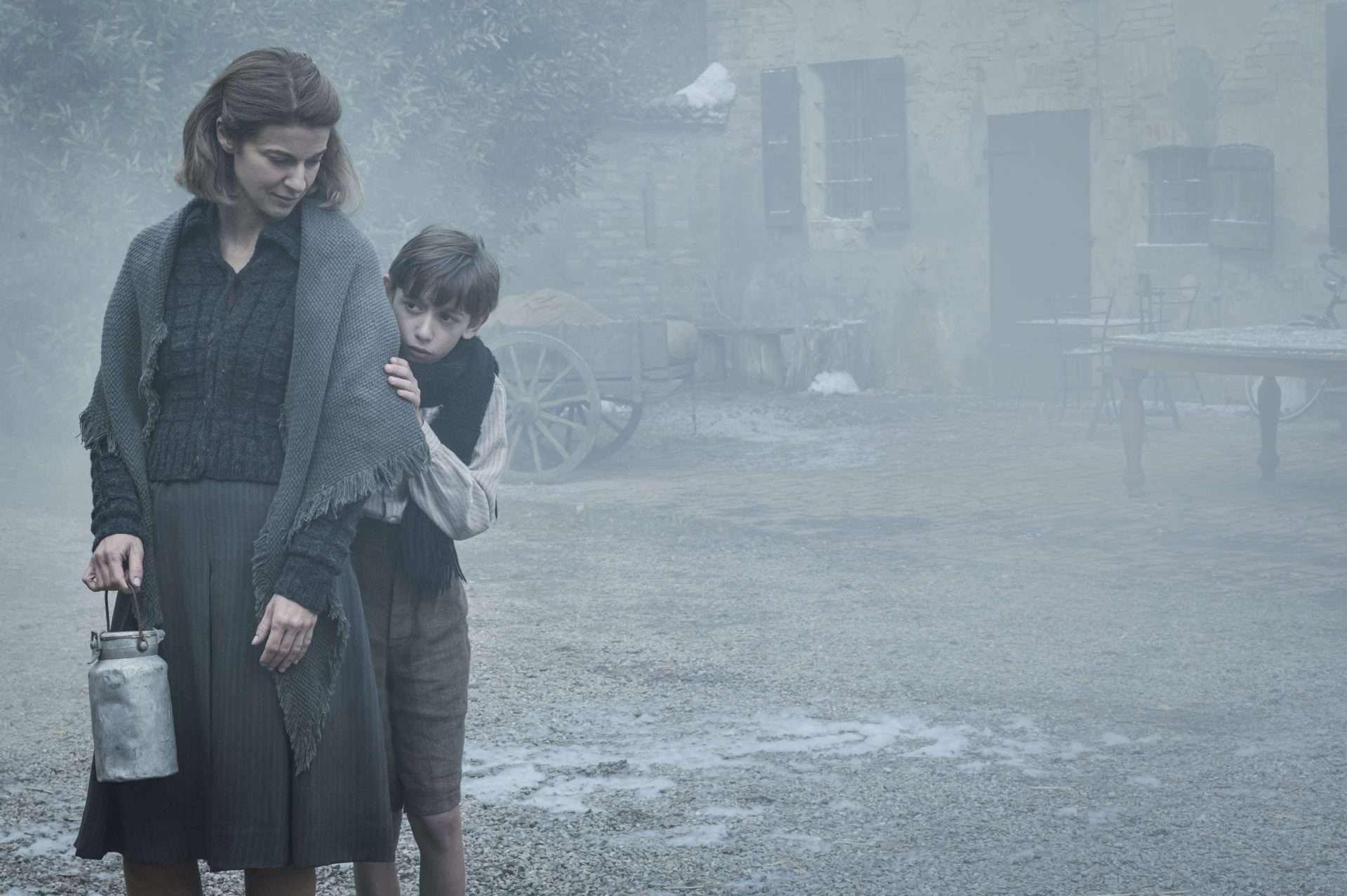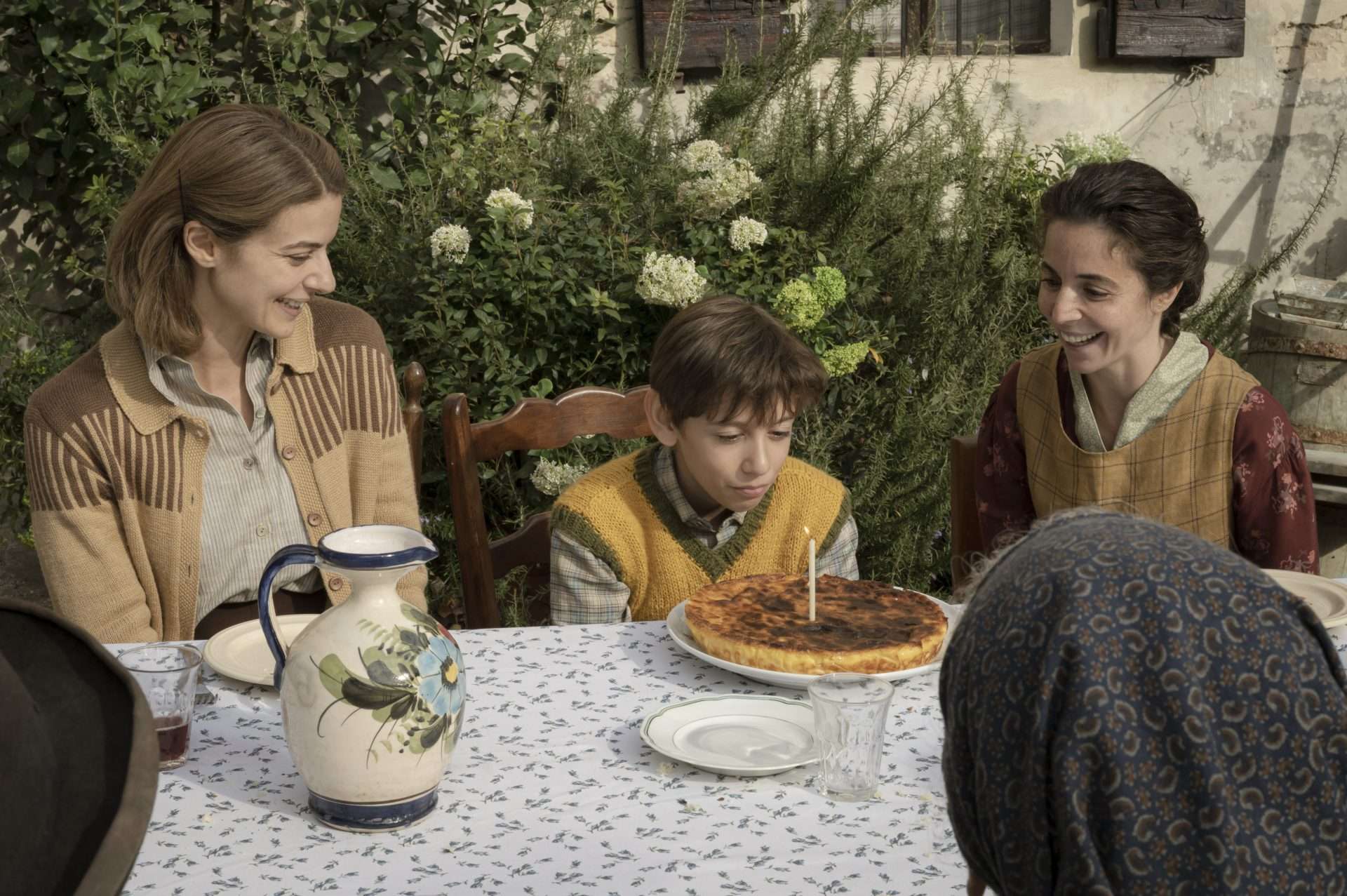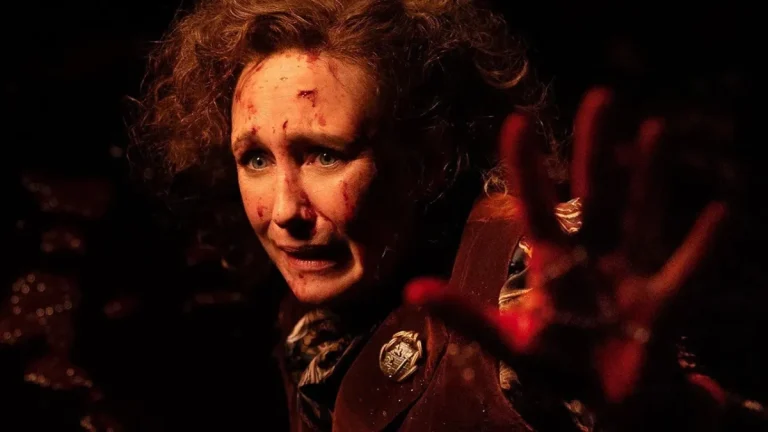Set in 1940s Italy, “The Children’s Train” (Original title: Il treno dei bambini) is a tragic tearjerker now streaming on Netflix. Co-written by director Cristina Comencini, the film is based on Viola Ardone’s eponymous book. The story follows seven-year-old Amerigo, a boy from a struggling family in war-torn Naples, navigating life amidst poverty and conflict. Subsequently, his single mother makes a difficult decision to send him to the greener pastures in the North to protect his life. Christian Cervone stars as the young kid while Serena Rossi plays his mother. Barbara Ronchi plays the woman whose family adopts him.
Spoilers Ahead
The Children’s Train (Il treno dei bambini, 2024) Plot Summary & Movie Synopsis:
Set in the 1940s, Cristina Comencini’s “The Children’s Train” (Il treno dei bambini) follows a young boy from Naples being sent to the Northern part of the country to lead a better life, growing up to be an accomplished musician.
What happens in ‘The Children’s Train’ (Il treno dei bambini, 2024)?
“The Children’s Train” (Il treno dei bambini) follows a story set in 1946 when Italy was in the midst of an ongoing war. It created civil unrest, leading to extreme poverty and malnourishment. While adults could barely make ends meet, kids found survival even harder. The parents could not provide children with enough nutrition, which also led to their untimely deaths. One of such parents was Antonietta Speranza (Serena Rossi), a single mother living with her seven-year-old son, Amerigo (Christian Cervone). She had to raise him by herself since his father left her, presumably to the greener pastures in America.
Antonietta cares about Amerigo as well as she can. However, she is not the ideal motherly figure that people expect women to be. Amerigo understands that and does not let it burden her. Despite her overall bluntness, he has a loving relationship with her as her son. As a young kid, he also notices how men ogle at her. He feels protective of her and helps her as well as he can. However, the war doesn’t seem to end nor does their poverty. Antonietta worries Amerigo will die in such difficult situations. Determined to find a better future, she makes the tough decision to join other parents in her neighborhood and take a bold step.
Amerigo’s Departure to the North
During the war, the Italian communist party was helping rehabilitate children to help them lead better lives until the war ended. Antonietta decides to seek these people’s help for Amerigo. However, the local religious people protest against trusting the communists with their children. They believe in the lies spread by the privileged class who see a change in social dynamic as a threat to their privilege. These poor religious people think Communists will kill and eat their children. They spread the same misinformation to instill fear and erode trust in the communists. Still, Antonietta and other parents decide to go ahead with their plans.

The comrades help children with new clothes and shoes at no charge and take them to their new guardians. The children get down at the station and are taken away by their respective guardians. Unfortunately, no one shows up for Amerigo. Eventually, Derna (Barbara Ronchi), a party member and a single woman, agrees to take Amerigo to her home. She introduces him to her family, who warmly welcome him. They trust the communist values that do not believe in individual possessions and look for equitable distribution of resources based on one’s needs.
While the adults understand the noble intentions behind it, the kids do not, which creates friction between them and Amerigo. Derna’s nephew does not appreciate sharing things with Amerigo. The local kids also tease Amerigo for his foul smell. Besides, Amerigo speaks Italian slightly differently than the Northern people. Therefore, initially, he finds it harder to adjust to his new surroundings and hopes to return to Naples to live with his mother. Thankfully, Derna comes to his rescue.
Amerigo & Derna’s Close Bond
Amerigo finds Derna much like his mother, who is caring but not a conventional motherly figure. Moreover, he does not mind Derna’s occasional bluntness. Derna finds that comforting. She and her family shower Amerigo with love he was not used to. Derna’s brother gifts Amerigo a personally crafted violin after realizing his deep interest in music. Around this time, the war starts coming to an end. So, the male party members suddenly expect the female members to return to their conventional duties instead of being the new voices in the party.
Derna speaks out against this sexist injustice. Instead of much-deserved recognition for her contribution, Derna receives a humiliating slap from a male party member. In the past, her soulmate was also paraded around the town and humiliated for political reasons. She sees history repeating itself. Amerigo realizes her pain and comforts her. They build a strong emotional bond and become near-inseparable. However, when the time comes, he gets on a train to return to Naples. As the train starts to leave, both he and Derna get emotional, realizing that they might never meet each other again.
The Children’s Train (Il treno dei bambini, 2024) Movie Ending Explained:
What happens between Amerigo and Antonietta?
After spending a while with Derna and her kind, loving family, Amerigo returns home to live with his mother. By then, he had gotten used to a better way of living in the North. Antonietta cannot provide him with the same. She sees his new violin and realizes his newfound interest in music. Since she cannot nurture that interest, she redirects his attention to laborious work to help make ends meet. He reluctantly joins other kids for a local job but finds his heart longing to be with the family he left behind.

Antonietta begins to notice subtle changes in Amerigo’s behavior, sensing that his expectations of her now exceed what she is able to provide. She silently suffers seeing him grow distant from her. One day, he returns home to find his violin gone. She reveals that she has pawned it. He also realizes that she purposefully kept Derna’s letters away from him. Unable to recover from her betrayal, he decides to go to Derna’s house alone. Upon his arrival, Derna contacts Antonietta, who agrees to leave him with her if that’s what he wants. So, he spends his life with Derna’s family.
Amerigo grows up to be an accomplished musician and moves to a better place in his life. One day, before his performance, he learns that his mother, Antonietta has died. After moving back to Derna’s house, he never returned to her. So, in the present, he isn’t sure what to do. He eventually decides to head back to Naples. There, he returns to his old house and sees the violin his mother previously pawned. He gets emotional thinking of the grudge he held against her for several years, leading their relationship to never get any closer.
The Children’s Train (Il treno dei bambini, 2024) Movie Review:
The trailer for “The Children’s Train” sells it as a melodramatic tearjerker that relies solely on the cliches of tragedies. The film slightly came across as overly manipulative, with its tragedy feeling more impactful due to predictable creative techniques rather than genuine narrative depth or meaningful insight. In a narrative like “The Children’s Train” which offers a fictionalized account of real-life scenarios, it becomes even more important. Otherwise, it ends up being nothing but a tragedy porn. Suffice it to say that Cristina Comencini’s film rises above these notions, for the most part.
It is an evocative portrait of personal growth amid war filled with ample moments of genuine warmth. The performances and the cinematography by Italo Petriccione and his team are the strongest elements that make it fairly captivating. While having every chance to be a sappy drama, the film diverts from usual genre trappings through time-specific insights into their lives. It handles the aspect of the formed family with charm and simplicity. The credit also goes for its non-stereotypical female characters of Derna and Antonietta, whose non-gender-confined definitions of love and care essentially shape the film.
Despite these admirable elements, the film is not remotely as memorable as the remarkable dramas about similar conflicts. In its Cinema Paradiso-like going-back-home structure, the film relies more on a dewy-eyed approach that blunts the sharp edges of the war they were facing. Although the script introduces the emerging ideological conflicts, it does not go deep enough to address them.







![22 July [2018] Review: Strong Start Ruined By A Tedious Middle Portion](https://79468c92.delivery.rocketcdn.me/wp-content/uploads/2018/10/22-july-768x432.jpg)
